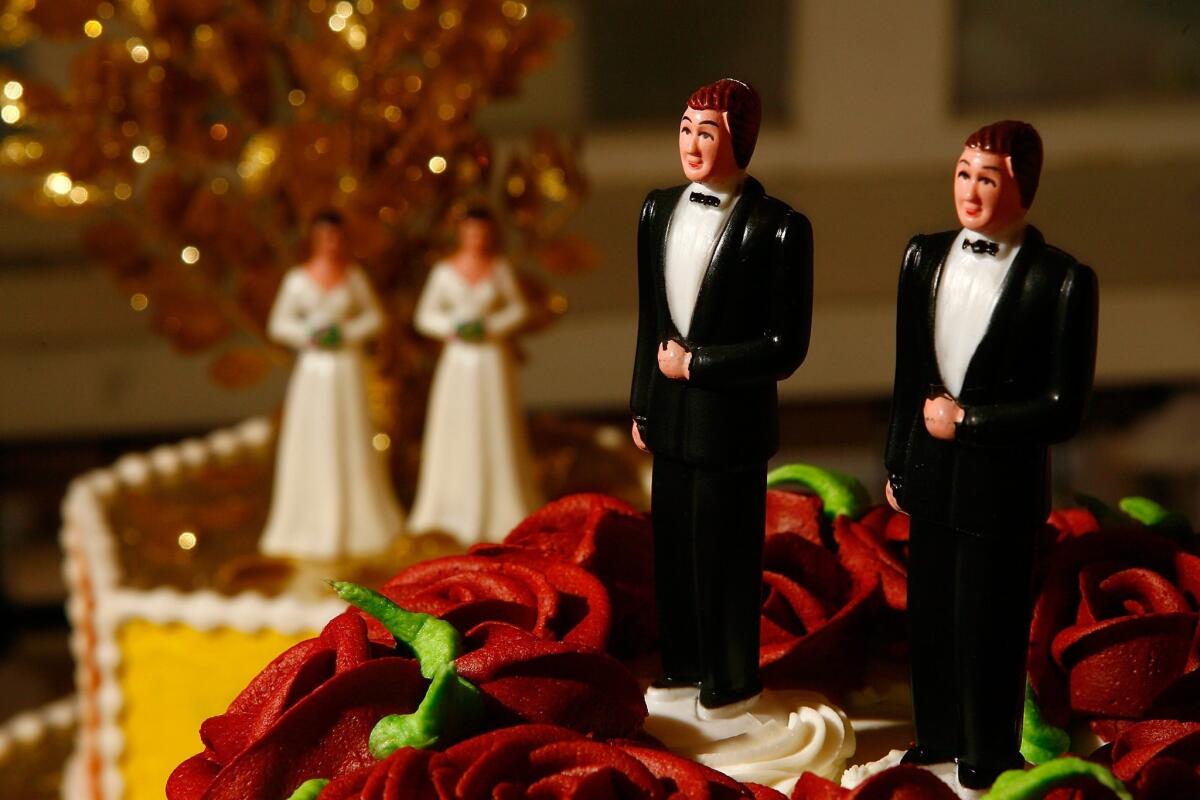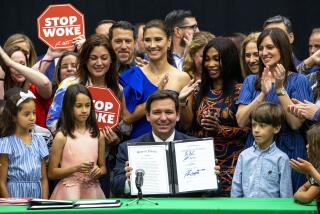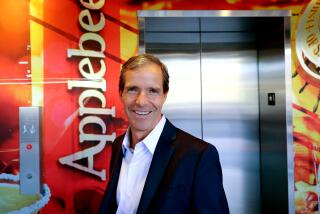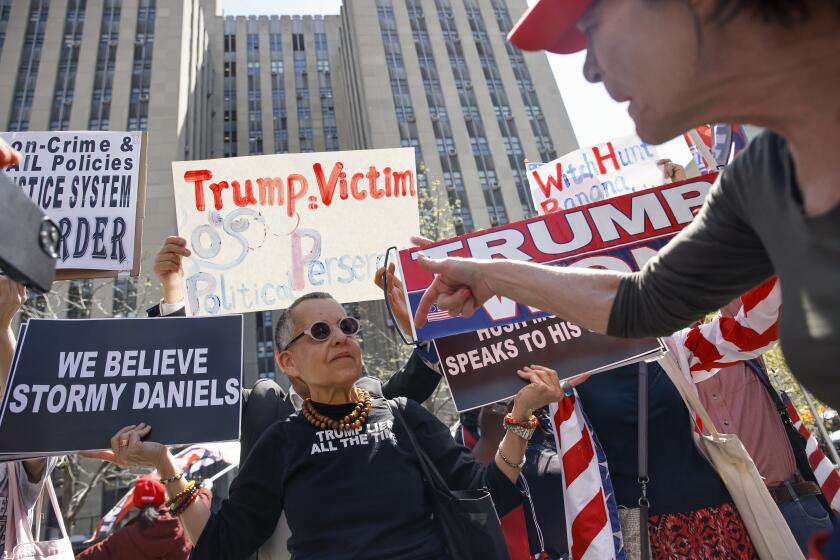Opinion: Can a baker refuse to make an anti-gay cake?

High school debaters call it a turnaround: when one team manages to redeploy an argument made by the other team right back at them. A beauty of a turnaround is now being wielded by those who say business owners with religious objections shouldn’t have to do business with same-sex couples.
A baker in Denver was asked by a customer to write anti-gay phrases (in icing, presumably) on two cakes shaped like Bibles. The customer, named Bill Jack, also wanted Marjorie Silva to add “an image of two men holding hands, covered in a big, red X.”
Silva balked. USA Today quoted her as saying: “After I read it, I was like ‘No way.’ We’re not doing this. This is just very discriminatory and hateful.’ “Jack has filed a religious-discrimination complaint with the civil rights division of the Colorado Department of Regulatory Agencies.
Nancy Leong, a University of Denver law professor, spoke up for Silva. “This is not a situation where a business owner denied service to somebody,” Leong told USA Today. “She offered to accommodate him to the extent that she could. In fact, requiring her to write that message would infringe on her own free-speech rights.”
But wait. What if a baker with traditional Christian views of marriage were asked to provide a same-sex couple with a cake bearing the message “Bob and Joe’s wedding” and showing two grooms holding hands (but without a judgmental X)? If that baker refused, wouldn’t she also be asserting her free-speech rights?
Massive turnaround!
This episode demonstrates that some supporters of gay marriage are too dismissive of the tension between gay rights and other values such as free speech and freedom of religion. It’s easy to say every business must accommodate the customer, but what if the customer is (by your lights) a bigot?
On the other hand, civil rights laws would be gutted if business owners could routinely refuse to deal with customers who offended their beliefs, religious or otherwise.
So a line has to be drawn. One possibility is to make a distinction between “expressive” acts by a business owner -- those that force her to craft a message -- and the provision of a generic product or public accommodation. This argument has been made about wedding photographers.
In the wedding-cake context, that might mean that a baker couldn’t refuse to sell a gay couple a generic wedding cake, but could balk at using her pastry gun to embellish it with a congratulatory message. (The same principle would protect pro-gay-marriage bakers from having to inscribe anti-gay messages on their cakes.)
This issue has arisen before in Colorado. In 2012, a baker named Jack Phillips declined to provide a wedding cake to a gay couple, who then filed a complaint. An administrative law judge sided with the couple, writing that Phillips had been asked “to bake a cake, not make a speech.”
So far, so good. But in appealing that decision, Phillips’ lawyers argued that their client was a “cake artist” and that decorating cakes is “a form of art and creative expression.” Forcing him to provide a gay couple with even a “nondescript” wedding cake would require him to communicate a “celebratory message” about a union he viewed as being against God’s will. (Interestingly, Alliance Defending Freedom, the legal group defending Phillips, has come out in support of Marjorie Silva.)
At the risk of slicing the issue too fine, I’d argue that there is a difference between asking a baker to provide a ready-made wedding cake and making the further demand that she write out a message that offends her beliefs. But I also see that this bright line could blur in other situations: For example, could the owner of a photocopy business argue that he should be able to refuse to run off copies of an invitation to a same-sex wedding?
However this issue is resolved, one thing is clear: Any rule that requires anti-gay bakers or other businesses to perform work they object to will have to apply equally to their pro-gay counterparts. Coming to that conclusion is a piece of cake.
Follow Michael McGough on Twitter @MichaelMcGough3
More to Read
A cure for the common opinion
Get thought-provoking perspectives with our weekly newsletter.
You may occasionally receive promotional content from the Los Angeles Times.







